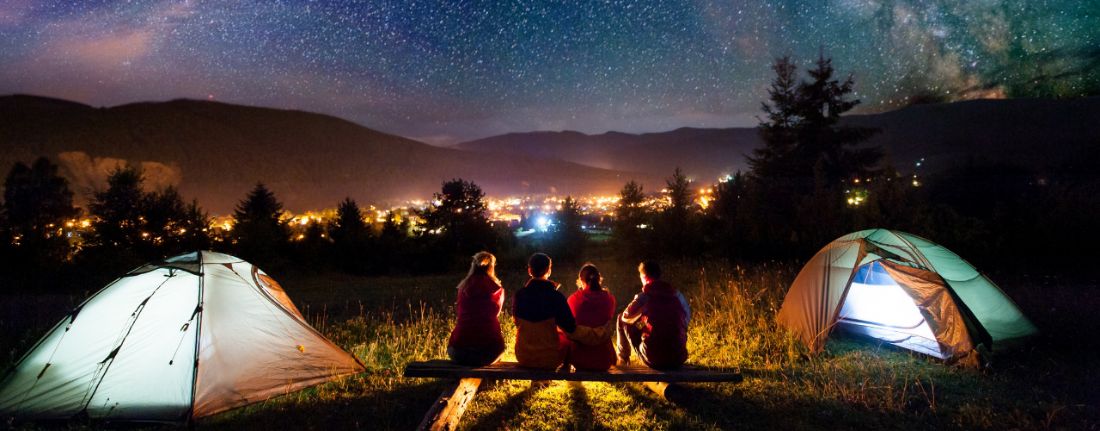Camping is a great way to disconnect from the rest of the world and bask in nature’s many offerings. To properly enjoy your trip, it’s important to follow the correct safety protocols. We’ve created a list of seven safety tips for your next camping trip.
1. Prepare for the Weather
It’s important to know the projected weather forecast ahead of time, but you should prepare for anything. Unexpected rainstorms can come out of nowhere, and you don’t want to be caught by surprise. Always have extra supplies, such as blankets and rain jackets, on hand just in case.
2. Know Your Plants
There are a handful of harmful plants that you may come across when in the wild, such as Poison Oak, Sumac, and Aconite (popularly known as Monkshood). Knowing how to identify these plants will help prevent you from accidentally coming in physical contact with any of them. For extra preparedness, you can download an app that will help you to identify plants.
3. Keep Food in Insulated Containers
You’ll want to make sure that food containers are insulated and waterproof. You also want something that seals well, as this will help keep out any unwanted dinner guests—such as insects and animals. All meat and dairy will need to be kept at a temperature that’s under 40 degrees. Ultimately, however, you should aim to keep most perishable items at home.
4. Follow Proper Fire Safety
Make sure you follow proper safety rules when building a fire. Avoid having a fire beneath any trees with low-hanging branches. You should also ensure that your fire is completely extinguished before going to sleep—and don’t forget, stray embers can stick around even when you think that the fire is out.
5. Know Simple First Aid Protocols
No one wants to get an infected cut or have an unexpected fall. Knowing basic first aid is going to go a long way in ensuring that everyone feels safe while on their trip. Have a first aid kit on hand that includes Band-Aids, tweezers, and disinfectants.
6. Stay Hydrated- But Be Aware of What You’re Drinking
It’s easy to forget to drink water when taking long hikes and enjoying a good time with family and friends. Remember that you’ll be in the sun for most of the trip and likely do a lot of walking, and proper hydration will help you prevent fatigue. Also, be careful in your choice of water sources, as water found in streams and rivers can be rife with bacteria. If you plan on drinking any of this water, purify it first by either boiling it or using a water purification tablet.
7. Always Travel in Groups
A relaxing walk in one’s own neighborhood or local park is one thing, but we caution against traveling without a companion in the wilderness. You can’t be sure what you’ll encounter, and cellphone reception can be spotty in certain locations. Having someone alongside you in the wilderness can ensure your safety.





